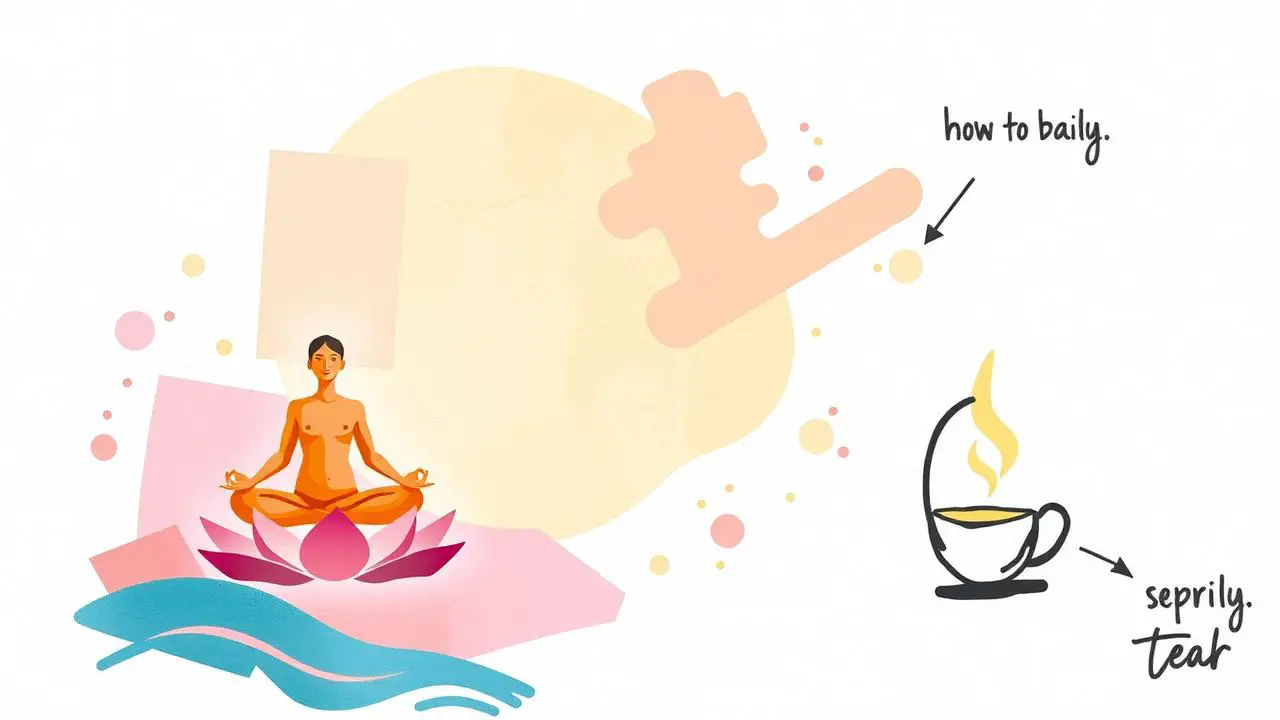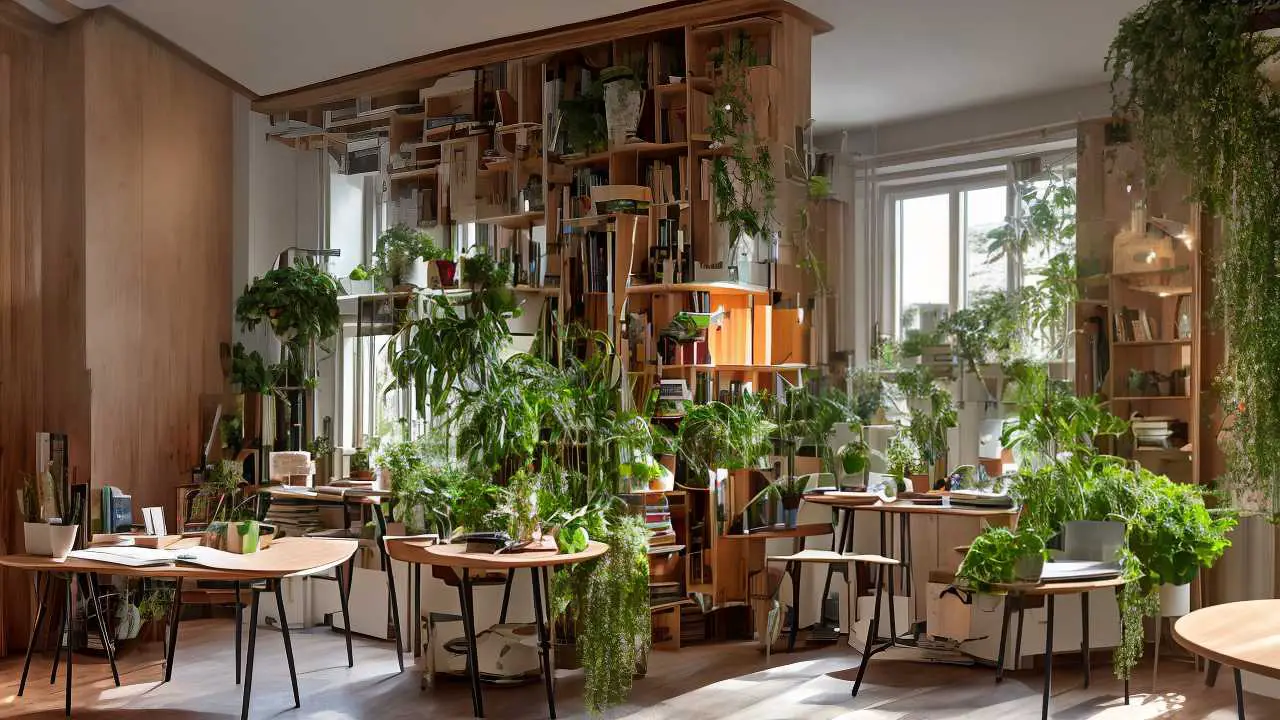Relaxation is an important part of any healthy lifestyle, both mentally and physically. It can help reduce stress levels and ease the symptoms of anxiety and depression. Physically, relaxation can reduce muscle tension and pain, as well as improve overall circulation.
Regular relaxation has many powerful health benefits that can have far reaching effects throughout your life. Relaxation techniques involve consciously slowing down your mind and body and allowing time for inner peace. This can be done in a variety of ways such as:
- Exercising
- Yoga
- Mindfulness meditation
- Visualization
- Breath work
By actively taking the time to relax you will be giving your body the opportunity to move out of fight or flight mode. In this mode, the body is always on guard for any change in its environment.
When you relax it allows your body to switch into a restorative state in which it begins to heal ailments both mental and physical continuing towards a place of balance within yourself.
Benefits of Relaxation
Relaxation can have many positive effects on a person’s physical and mental health. Taking the time to relax can reduce stress levels and help prevent serious health conditions such as high blood pressure and heart disease. Relaxation can also help improve mood, reduce anxiety, and promote better sleep.
Let’s take a look at some of the other benefits of making relaxation a priority:
Improved physical health
Relaxation can have tremendous health benefits for your body. When you give yourself permission to relax and take a break from the stresses and demands of busy life, the effects are often felt instantly. Relaxation nurtures the body by reducing tension, easing muscle pain and helping to improve both physical and emotional wellbeing.
Deep relaxation practices, such as deep abdominal breathing, yoga and tai chi, have been found in studies to help reduce blood pressure levels, lower resting heart rates and reduce cortisol – also known as the stress hormone – levels in the blood.
All these physiological benefits can lead to improved sleep quality and a greater overall sense of wellbeing.
Physically engaging in restorative activities such as massage therapy or acupressure can also aid in loosening tight muscles while improving circulation throughout the body.
Additionally, regular relaxation activities such as yoga postures or stretching exercises aid in reducing fatigue while increasing overall energy levels.
Finally, regular massage therapy has been found to boost immune system functioning and increase natural pain-fighting endorphins which help reduce physical pain symptoms in muscles and joints.
In short, relaxation has tremendous benefits that improve overall physical wellness when practiced regularly.
Improved mental health
Receiving regular relaxation training or utilizing relaxation techniques can help to improve mental health in many ways.
If you practice these techniques regularly, you may experience an increased sense of well-being, a reduction in stress levels, more efficient problem-solving skills, greater self-awareness, and sharper concentration.
Additionally, relaxation techniques can reduce feelings of depression or anxiety and help to improve cognitive functioning.
Relaxation exercises such as deep breathing and visualizing positive outcomes can allow you to manage your emotions better and cope with challenging situations more effectively.
Other relaxation methods such as yoga or massage can introduce physical exercise into your routine which improves the overall quality of your life.
Relaxation can also make it easier to experience good sleep which is fundamental for great physical and mental health.
Furthermore, by engaging in relaxation methods like deep breathing or meditation more often each day, you can strengthen neural pathways related to focus and increase grey matter densities across different areas of the brain associated with emotion control and stress management.
Finally, taking some time out of each day just for yourself is beneficial both emotionally and mentally – it will allow you to refocus on what matters most in life without the distraction of busy schedules or outside influences that might otherwise take away from your personal growth.
Improved sleep
A key benefit of relaxation is improved sleep. Physically and mentally forcing yourself to slow down can help you to fall asleep faster, enjoy a deeper and more restful sleep, and wake up feeling more refreshed the next day.
Pratice relaxation exercises such as guided meditation or progressive muscle relaxation before bed can help your body release physical tension as well as quiet your mind, calming racing thoughts so that you can drift off to sleep more easily.
Additionally, when we are relaxed during the day (through regular practice of relaxation exercises) we are able to cope better with stressors in our environment.
This in turn helps us deal with any sleep disturbances that may otherwise be due to them. Better daily relaxation can lead to improved sleeping patterns over time – which is especially beneficial for those suffering from insomnia and other sleeping disorders.
Also see: Why Does Meditation Make Me Sleepy? The 9 Common Reasons
Types of Relaxation
Relaxation is an important aspect of any healthy lifestyle. From taking a hot bath, to going for a run, to doing yoga or meditation, there are a variety of ways to relax and unwind. In this article, we will look at some of the different types of relaxation and why they are important to practice regularly:
Meditation
Meditation is an ancient form of relaxation that has been widely practiced for centuries. It is a mind-body practice that focuses on quieting the mental chatter, allowing the body to relax.
This can be done through deep breathing, calming and slowing of the heart rate, focusing on positive thoughts and practices such as mindfulness meditation, visualization, and gratitude.
Meditation is believed to help reduce stress by creating an emotional balance and clarity of thoughts that can give you a renewed sense of direction and inner peace. Studies have also shown it may lower blood pressure, improve attention span and concentration, help regulate your moods and create feelings of relaxation physical wellbeing.
When practiced regularly along with other healthy lifestyle habits – such as adequate sleep patterns and healthy eating – meditation can have profound effects on your overall emotional well-being while decreasing feelings of anxiety or depression.
It can also promote better resilience during times when life feels overwhelming or chaotic by helping to create more mindful reactions instead impulsive choices.
Yoga
Yoga is a very popular form of relaxation that has been practiced for thousands of years. It is a system of postures, breathing techniques, and relaxation which is intended to bring the body and mind into balance.
Benefits of yoga include promoting physical and mental wellbeing through improved flexibility, respiration and strength, as well as reducing stress levels. Asanas (postures) can be learn in classes with a qualified instructor or individually at home through self-study.
Other yoga relaxation methods may include chanting, guided visualisations and Pranayama (breathing exercises). Practicing these techniques regularly can help to relax the mind, reduce tension in the body and improve quality of life.
Deep breathing
Deep breathing is an essential and simple relaxation technique that can help reduce mental, emotional, and physical stress. When we’re stressed, our chest tightens and we take short shallow breaths. This sends a message to the body that it needs to stay in fight-or-flight mode, which can lead to further tension and feelings of anxiety. Deep breathing on the other hand sends the message that everything is okay, and helps the body relax.
There are many ways to practice deep breathing such as:
- 4-7-8 Breathing: This technique involves inhaling through the nose for four counts, holding your breath for seven counts before slowly exhaling through your mouth for eight counts. Repeat this sequence three or four times to begin feeling more relaxed and calm.
- Abdominal Breathing: Place one hand on your stomach and another over your heart center. Take a deep breath in through your nose as you fill up with air until you cannot inhale any more air – then slowly exhale out of your mouth or nose (whichever feels more natural). With this technique you want the hand over your stomach to rise upwards first before the one over your heart starts rising – indicating full oxygenation of both lower lobes of the lungs. Repeat 4 – 7 times for full benefit from this exercise
- Alternate Nostril Breathing: This exercise involves alternating inhales from each nostril as you focus on closing off one nostril at a time with an index finger or thumb while simultaneously focusing on slow breath cycles throughout this exercise. With one hand hold your right nostril closed while taking 3 deep breaths in through only your left nostril; then switch sides by closing off your left nostril while taking 3 deep breaths in only through your right nostril; go back and forth like this until all have taken 9 full breaths total (3 with each side).
Tips for Relaxation
Finding time to relax and take a break from the hustle and bustle of everyday life can be challenging, but it’s important to take care of yourself. Taking time each day to relax is good for both your mental and physical health.
There are a number of tips and techniques you can try to help you relax and unwind. In this article, we’ll explore some of the top tips for relaxation that you can use:
Find a quiet place
Finding a quiet place to be in your own thoughts can do wonders for your mental state. Unplug from the world and make sure all of your distractions, such as cell phones, computers, and television are out of sight. Identify an area or room where you feel relaxed and peaceful away from it all, like the mountains or the beach, and visualize yourself there when you take time out for relaxation.
A simplified technique practiced through meditation or conscious breathing is important in helping to cope with stress.
Start by finding a comfortable place where you won’t be disturbed. Closely observe your breath with your eyes closed and focus on slowing it down with each passing breath.
This helps to quieten the mind which enables you to switch off from life’s stresses while still maintaining emotional control over them when they arise again in due course.
Practicing yoga or even devising your own stretching routine can work wonders for relaxation too. The guiding principle with both these exercises is to be guided by how their bodies feels during these motions so that you don’t cause any undue strain physically or mentally.
A practice known as self-compassion involves reminding oneself of their worthiness and recognizing worth outside themselves as well – seeing ourselves first without judgement allows us to accept our hardships without blame and have feelings of kindness towards oneself so that we may move forward more easily in times of struggle.
Practice mindfulness
Mindfulness is a powerful practice for calming your body and mind and focusing your attention. It is a way of paying attention that cultivates awareness of the present moment without judgment.
Mindfulness helps to gain an awareness of our thoughts and feelings so we can respond to them with wisdom rather than being overwhelmed by them.
To practice mindfulness, sit quietly in a comfortable position or lie down if that works better for you. Focus on your breathing as it moves in and out of your lungs, allowing thoughts to come and go without judgement or reaching conclusions.
Other ways to practice mindfulness include:
- Attending yoga classes.
- Going on mindful walks.
- Creating an intentional practice each day through journaling, breath work, affirmations or guided meditation.
It can take some time to learn how best to practice mindfulness so be patient with yourself as you explore what works most effectively for you.
Take a break from technology
To truly relax and unwind, it can be helpful to take a break away from technology such as televisions, phones, and other electronics.
It can be difficult to unplug completely in this day and age of constant connection, but studies have shown that stepping away from the world of technology can reduce stress and lead to a better quality of rest.
Here are some tips for limiting your exposure to technology:
- Turn off your devices 30 minutes prior to bedtime and keep them out of your bedroom completely. This will help promote healthy sleep cycles.
- Create dedicated times of the day where you refrain from using your phone or laptop, such as when you’re eating breakfast or enjoying time with friends or family.
- Make use of “Do Not Disturb” settings available on most devices and create specific boundaries for yourself in terms of how much time you spend with your phone or laptop each day.
- Take regular breaks during the day where you put down your device entirely for five, 10, 15 minute periods – whatever is comfortable for you – before picking it back up again. This will help minimize distractions so that you stay focused on what’s important in life – relationships.
- Schedule a “phone free” holiday if possible; this could mean going on vacation without bringing any technology with you!
How Does Meditation and Aromatherapy Contribute to the Health Benefits of Relaxation?
Meditation and aromatherapy are powerful tools that can enhance relaxation and promote overall well-being. By using calming scents and mindfulness techniques, these practices can reduce stress, improve sleep, and boost mood. To learn more about the health benefits of relaxation, explore our relaxation guide.
Conclusion
To conclude, relaxation can have distinct physical, mental and emotional benefits for the body. From improved sleep quality to better management of stress and anxiety, incorporating relaxation techniques into your daily routine can have a positive impact on overall wellbeing.
Whether it is through mindful activities such as meditation or through creative activities such as drawing or writing, relaxation can be beneficial for anyone willing to put in the effort.
By engaging in healthy strategies for self-care and stress management, individuals are capable of reducing strain on their bodies and maintaining a safe distance from negative emotions which can hurt both the body and mind.
Remember, the more you relax each day, the easier it will become to optimize your health and wellbeing.




